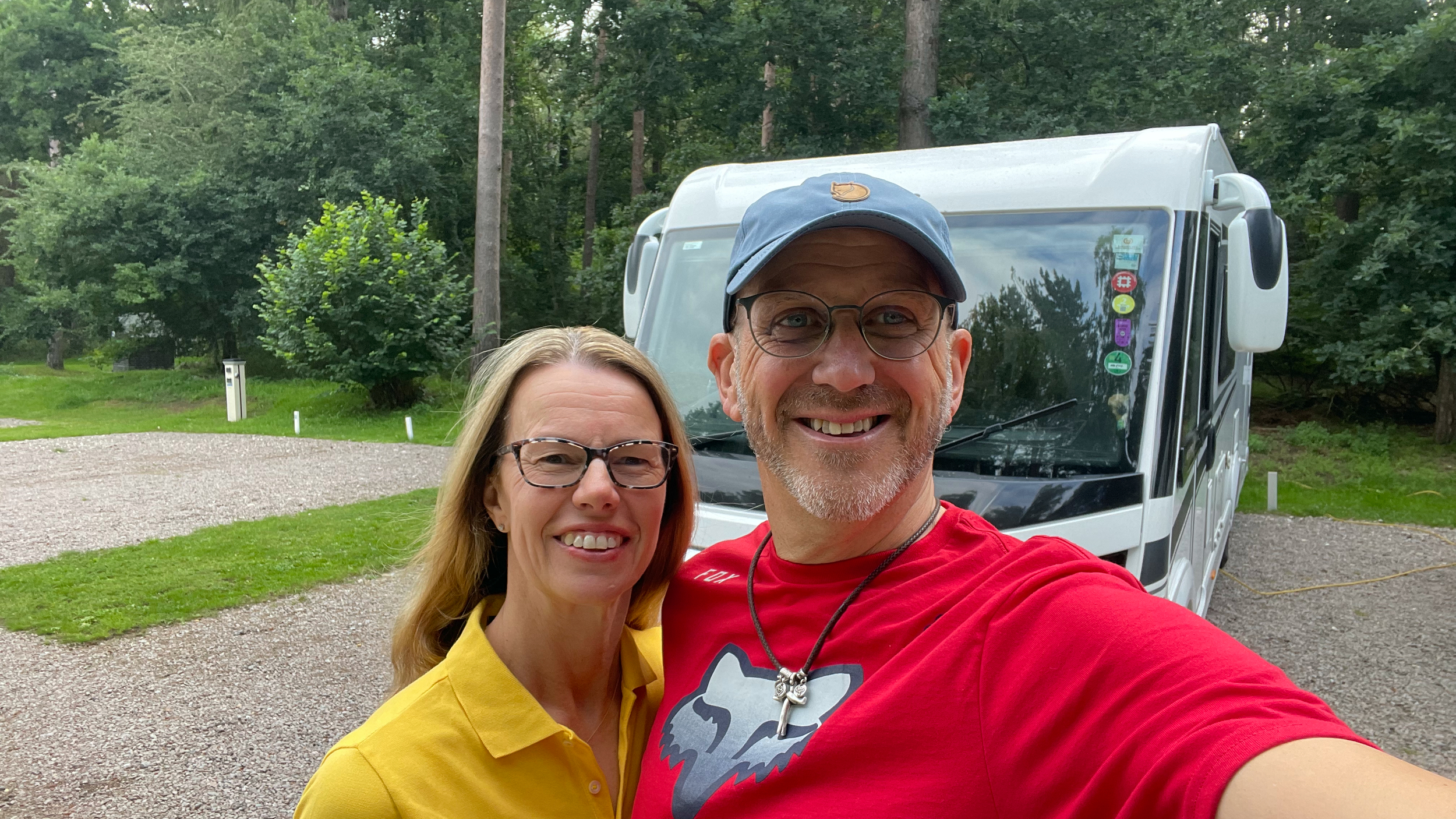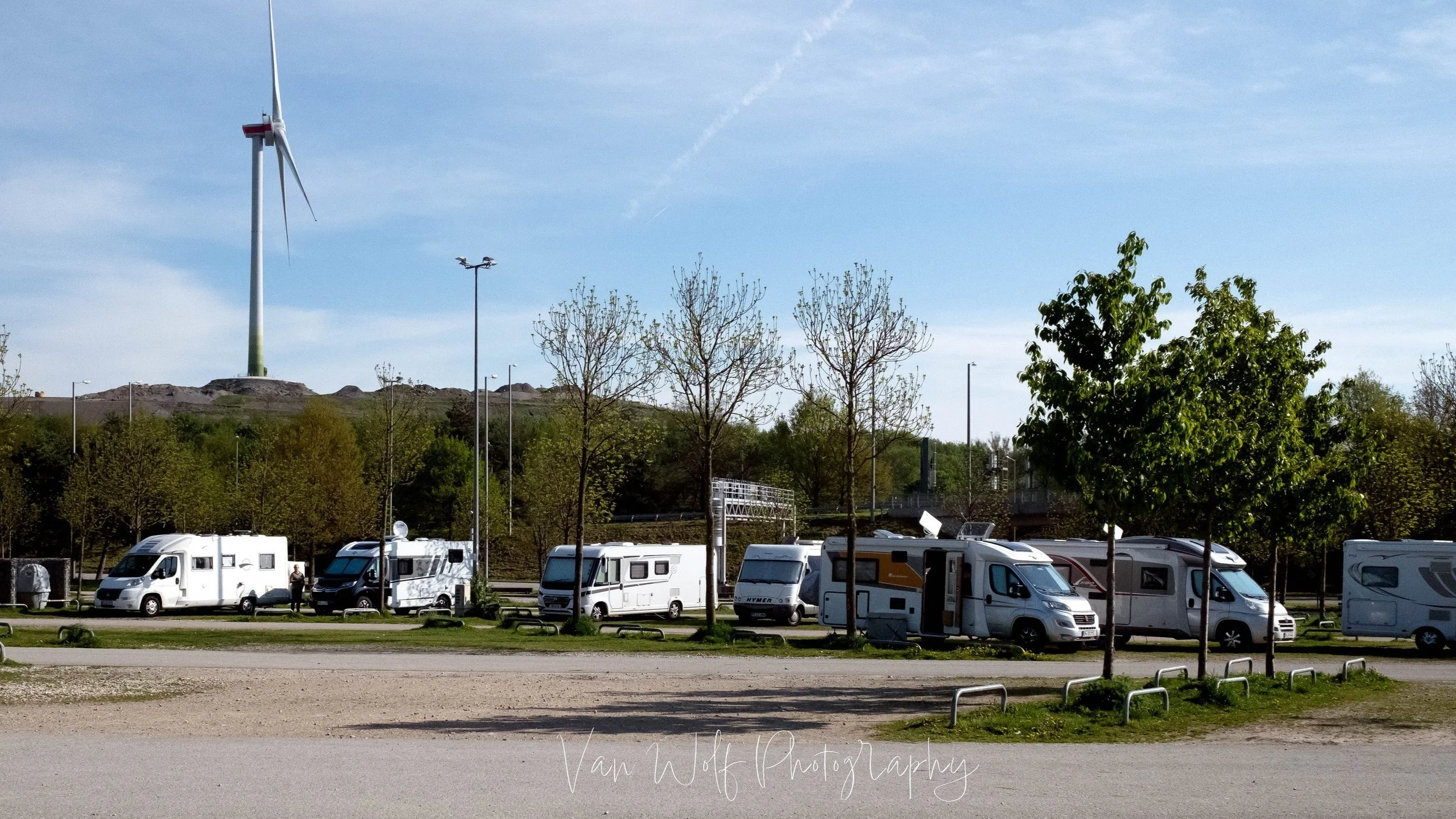Living full time in our van it’s not for us. Here’s why.
We have been caravanning and motor homing since 2007. Between homes we lived in our motorhome for a year, mainly in Europe prior in time before Brexit restrictions. Last year, we spent 261 nights in our van, touring various parts of the UK and Europe.
Understandably, people regularly ask us if we have ever considered living full time and, if not, why not. I think these questions are asked for two reasons. Firstly, there's general interest; I accept it does seem strange to have a house and not spend so much time in it. Secondly, more people than ever are drawn towards the idea and the perceived freedom it allures to and enjoy discussing the topic
Let me state at the outset that if you watch us regularly, you will know that we never critique anyone else's choices. Firstly, because we respect the freedom of choice others hold. And secondly generally you would never judge the decisions of others unless to have had the chance to walk in their shoes and understand someone's whole life to comprehend their position. This is of course is invariably unusual.
All anyone can do, in our opinion, is respect the position of others and apply your own personal considerations to any decision made.
So, what's the attraction ?
Before we delve into the concept of full-time van life, it's useful to understand that there isn't a single reason why people do it. For every negative practical reason against it, someone has likely thought of a creative workaround to address it. We have quite a few friends who live and thrive in their new world, although all aspects of van life might not be a utopian existence but neither is any lifestyle choice that we are aware of.
So in this session, I will discuss the main attractions for people living in their vans, some considerations made in making that lifestyle choice, and then share our position.
Remember, if you live full-time in your van, this isn't an individual criticism of your life; we would never do that.
Variations of Van Life
Some are chasing the nostalgic dream of a free life on the road. The captivating image of being unburdened by responsibilities is a genuine draw, especially for those seeking respite from routine and financial stress.
Others embrace full-time van life out of necessity. This can be due to financial constraints or the wanderlust nature of some individuals who need to roam.
Certain people turn to van life for mental health reasons. Some individuals struggle in crowded environments and need to break away from what they consider to be detrimental settings.
There are those who live in their vans and work full time. While some do it due to economic necessity, others genuinely enjoy their work and couldn't imagine life without it. After all, work can be fulfilling, right?
Another point I'd like to make is that just as some will try it and succeed, some will dislike it and return to bricks and mortar living. A third group might face unexpected life changes that force a shift in lifestyle. It's not a zero-sum game and will never be.
Specific considerations are highly personal and should be viewed as challenges that many people can overcome.
Financial security varies. Some people are retired, some have inherited wealth, possess independent means, or plan to work to support themselves. Depending on the ages of those involved, this can be a long, medium, or short-term matter. If income generation remains an issue, aspects like making National Insurance and pension contributions could be vital for future financial security.
Day-to-day living expenses on the road can be higher than anticipated. While costs can be minimised, you might not want to live frugally all the time.
The vehicle is your home; accidents, theft, or repairs might necessitate finding alternative accommodation. The value of vehicles, which largely depends on age, could require replacement.There are also different insurance considerations when living full time in a van. But once again there are practical work arounds for all these subjects.
Attitude towards property matters also influences decision making. Will you sell your home, and can you safeguard any accumulated capital for potential return to the property market later? Renting out your property is another option.
Planning for the future is crucial. Aspects like medical care post-Brexit are evolving, and this could compel more UK-based living. Depending on the type of vehicle and overall health, driving licenses might be suspended or expire, making driving more challenging.
Families might consider homeschooling during van life for flexibility. My niece was homeschooled and now holds a PhD in Astrophysics, working with the European Space Agency. This approach seems feasible, but it requires confidence in the teacher and consideration of the social aspects of schooling.
Health issues can arise; managing them is essential. Some handle this well, and the lifestyle even improves their well-being.
Your attitude towards family matters. Upbringing, closeness to extended family, and potential caregiving responsibilities towards parents can affect your travel range, impacting your original plans.
A balanced over view would not be complete without mentioning there some who object to the concept , especially those that are young , roam and in the view of this assessment view are not contributing to the development of society. I find this view too general to analysis across the community as it would surely require a case by case assessment to establish this view , even if there was a credible way to assess it.
The key point I'm trying to convey is that there isn't a single narrative that describes van life or a person's reasons for pursuing it. While it's more complex with children and families, some manage it quite well.
About Us
Do we think about it? All the time, especially when we're away and it's time to head home. Although we're privileged to live in a pleasant place surrounded by friends, we wouldn't choose a full-time transitory life.
Before I explain our reasons, let me state this for anyone watching: this isn't a criticism of your chosen lifestyle. You have every right to decide for yourself. Besides, coming from honest, working-class backgrounds, we were taught to mind our own business, focus on leading a good life ourselves, and abide by the rule that if you have nothing good to say, don't say it. We've tried to live by that.
There are many reasons why we find the idea of full-time van life appealing. The notion of constantly wandering, staying forever young, and capturing every sunrise and sunset with a camera in hand is the dream we'd choose if we could decide the form of our own mortality.
As I write/say this, I'm hearing Freddie Mercury singing "Who Wants to Live Forever" in my ear.
When making this decision, various supporting concepts may come into play. Ultimately, whether you choose to embrace this lifestyle or not boils down to one issue: whether you've found a way to navigate it.
Here's our rationale, accompanied by a short story.
Once upon a time, a 40-year-old woman and a 50-year-old man sold their house and pursued a dream, leaving behind traditional structures. For the most part, their life was wonderful. However, the woman grew concerned as they aged about comfort and old age. The family dynamic didn't change as much as they'd hoped; they couldn't easily accommodate them, nor spend time with extended family and friends. The children entered busy phases in their lives and visited less frequently. The nomadic lifestyle hindered casual interactions.
They had envisioned that the money from their house sale would accumulate with interest, but the reality was different; the property market moved on. Renting was considered, but it turned out to be more expensive than mortgage payments. Since they left the workforce early, they lacked occupational pensions. Loneliness crept in, and they began to travel less. In their 70s, health issues emerged, surgeries and recoveries were challenging, and expenses related to their aging home added to their concerns. The woman implored her husband to reconsider their home. Eventually, a twelve-month stint of van life between homes became a compromise.
At the age of 83, the woman passed away, leaving the man alone. The council offered him accommodation, but it wasn't particularly inviting. Approaching his 90th birthday, cancer struck, leading to a gradual decline. Despite his declining health, he refused to move; the stubbornness that old age can bring. Unable to drive, and while social services offered support, it wasn't sufficient. This put strain on the family to provide assistance.
We vowed never to burden our children with our health.
The story is true, with one difference: it wasn't a van, but a narrow boat. The context may vary, but the proximity is apparent. These people were my parents.
We will never place the burden of our health on our children, even though they certainly didn't want it. They probably never thought they'd live forever, but perhaps they felt invincible.
I don't resent the life they lived; I'm genuinely happy for them. However, it's not the path for us. Our family, friends, community, church, gym, running club, and neighborhood mean too much to us. We cherish them too deeply to risk burdening our children with worry. Their worries will come soon enough.
So, I hope that covers this issue. The next Ten Minute Tuesday will focus on the new ETIAS travel process coming to the EU in 2024—an aspect we all need to prepare for
Picture taken on the Isle of Islay in 2018 with our previous van.
If you prefer to watch the video we made on this subject click on the link below. Thanks for reading and watching Helen and Martin





